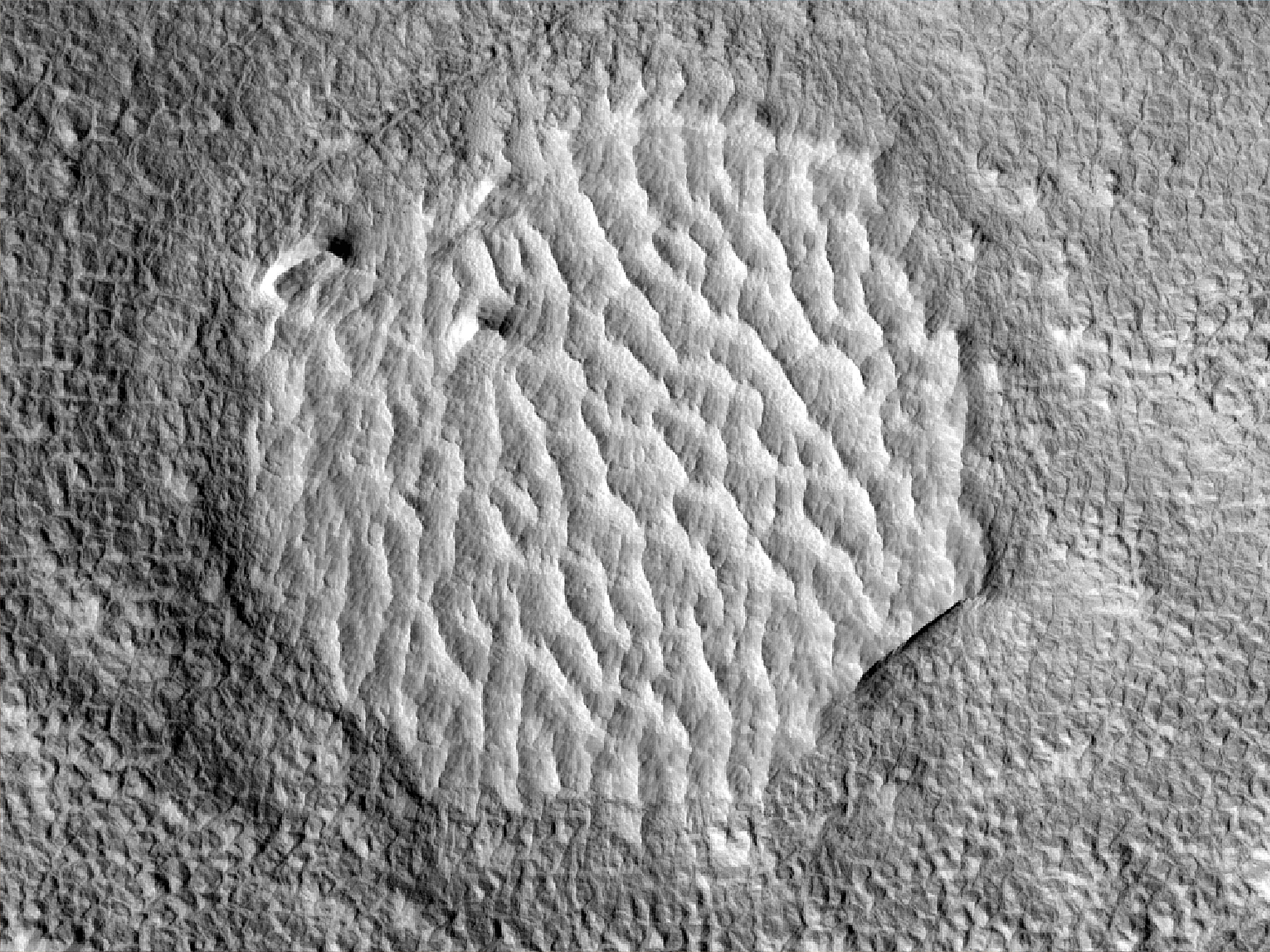The surface of Mars hosts numerous occurrences of sedimentary rocks, some of which formed by wind or fluvial processes in an earlier era. This image reveals extensive wind-driven bedforms
in the craters that occupy the smooth plains of Arcadia Planitia. These bedforms exhibit rippled textures with distinct crests that appear to bifurcate or merge, while yielding crest spacing analogous to contemporary Martian megaripples.
However, these are not modern wind-driven bedforms, but rather ancient ones.
A closer look shows a lack of meter-scale ripples, occasional inter-crest boulders, and steep overhanging edges of the deposit that demonstrate inactivity and lithification. While prior surveys have shown hundreds of these paleo-megaripple fields across the region, this single image contains nearly two dozen.
A previous post describes a related Arcadia Planitia field.
ID:
ESP_028161_2210date: 29 July 2012
altitude: 299 km
https://uahirise.org/hipod/ESP_028161_2210
NASA/JPL-Caltech/University of Arizona
#Mars #science #NASA
